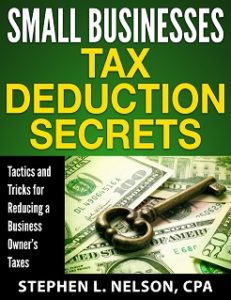The first thing we need to say is that if you’re an entrepreneur or business owner operating internationally, you need to be really careful about reporting your activities to the U.S. government—really careful. The IRS has an extreme interest in your foreign business investment.
The second thing we need to say is that the rules for reporting interests in foreign business entities depend on the type of entity the business is classified as under U.S. tax law.
The good news? You can generally figure out what the classification of a particular type of foreign entity is by consulting Treasury Regulations 301.7701-2 and 301.7701-3. Once you’ve determined the correct classification of the foreign business entity you’ve invested in, you’re ready to determine your reporting obligations.
Corporations
If you’ve acquired an interest in a foreign corporation, you likely have to file Form 5471, a time-consuming document to fill out (even for a skilled tax accountant working with high-end tax software).
Specifically, the requirement to report an interest in a foreign corporation on a Form 5471 kicks in for the following situations:
- You own, directly or indirectly, a controlling interest (more than 50% of the stock or the voting power) of a foreign corporation (IRC § 6038). Controlled foreign corporations are sometimes referred to as CFCs.
- You organize, reorganize, or acquire 10% or more of the stock in a foreign corporation (IRC § 6046), or you become a U.S. person while owning 10% or more of the stock in a foreign corporation.
- You are an officer or director of a foreign corporation with more than 10% U.S. owners (IRC § 6046).
- You are considered a shareholder of a foreign corporation under IRC § 953(c) (IRC § 6046).
You might wonder how big a deal this requirement even is, but here are some facts you’ll want to keep in mind.
First, the minimum penalty for failure to file Form 5471 for a CFC is $10,000 per missing form [see Treas. Reg. § 1.6038-2(k)]. And you can be assessed more than one $10,000 penalty for failing to file the form. So you do not want to goof this up or blow this off.
Second, you can’t prepare the Form 5471 using popular consumer tax software programs such as TurboTax nor, as a practical matter, with most of the modest-cost professional tax software programs either. This is a high-complexity task that requires a skilled tax accountant. (A full-blown 5471 amounts to a corporate tax return with GAAP financial statements prepared in both the functional currency used by the foreign corporation and also U.S. dollars.)
Third, up-front planning can dramatically reduce the work of disclosure because of a quirk in the regulations related to foreign entities.
This gets complicated but briefly, here’s the deal: By default, U.S. limited liability entities (other than true corporations) get treated as disregarded entities or partnerships by tax laws. And this default treatment keeps things easy—or at least easier.
The rules for non-U.S. limited liability entities work differently, however. By default, non-U.S. limited liability entities get treated as corporations, which means these entities by default do require a 5471 form. However, if you act quickly (by filing a Form 8832), you may be able to elect to have the default rules for entity classification overridden and not be burdened by the requirement to file a 5471.
Disregarded entities and partnerships, however, do have their own reporting requirements, as discussed next.
Partnerships
If you’ve acquired an interest in a foreign partnership, you likely have to file Form 8865, which is essentially a miniature partnership tax return.
But here again the rules are a little tricky. The requirement to report kicks in for the following situations:
- You own a controlling interest (more than 50%) in a foreign partnership (IRC § 6038). Controlled foreign partnerships are sometimes referred to as CFPs.
- You make a Section 721 contribution to a foreign partnership in return for an interest of at least 10% of the partnership, or you make a Section 721 contribution to a foreign partnership that exceeds $100,000 (IRC § 6038B). (A Section 721 contribution is a contribution of property in exchange for an interest in a partnership.)
- You acquired an interest in a foreign partnership, you disposed of an interest in a foreign partnership, or your proportional interest in the partnership changed substantially (IRC § 6046A).
The minimum penalty for failure to file Form 8865 for a CFP is $10,000 per missing form [see Treas. Reg. § 1.6038-3(k)].
Disregarded Entities
If you’ve acquired an interest, either directly or indirectly, in a foreign disregarded entity (often abbreviated as FDE), you likely have to file Form 8858 for each FDE you own (IRC § 6038). The requirement to report kicks in for the following situations:
- You are the “tax owner” of the FDE at any time during your tax year.
- You are required to file Form 5471 because you own an interest in a CFC (see above), and the CFC is the “tax owner” of the FDE.
- You are required to file Form 8865 because you own an interest in a CFP (see above), and the CFP is the “tax owner” of the FDE.
How must I report the income of a foreign corporation I own stock in?
The default rule
Generally U.S. taxpayers owe U.S. tax on the earnings of their foreign subsidiaries when the income is repatriated. Under this default rule, the earnings are taxed as dividends (and also net investment income) to the U.S. taxpayer. These dividends are sometimes taxable as qualified dividends. However, under the default rule, the U.S. taxpayer cannot claim the foreign tax credit for foreign income taxes paid by the subsidiary.
The optional rule
A U.S. taxpayer that owns a foreign subsidiary can make what’s called a “check-the-box” election. By making this election, the taxpayer forgoes the deferral of income from the foreign corporation and dividend tax rates, but it becomes eligible to claim the foreign tax credit for income taxes paid by the foreign subsidiary.
The loophole-closing rule
U.S. taxpayers must include their pro rata share of a CFC’s “Subpart F” income in their taxable income. Note, however, that there is a de minimis rule in IRC § 954(b)(3)(A) which exempts many small businesses from having to worry about Subpart F income. See IRC §§ 951-965 (Subpart F) for more details.
My business is a U.S. partnership, but it has a foreign partner. What are my reporting obligations?
You must file Forms 8804, 8805, and 8813.
In addition, you must withhold U.S. income tax from the partner’s distribution (IRC § 1446).
By the way, not to be grumpy, but often the worst part of having to fiddle with the foreign partnership forms and withholding is getting a non-U.S. taxpayer identification number for the partner—something you do using with Form SS-4 (for entities) or Form W-7 (for humans).
My business is a U.S. corporation, but it has foreign shareholders. What are my reporting obligations?
If your U.S. corporation is more than 25% foreign owned, then you must report so on Form 5472 (IRC § 6038A).
Are You a Small-Business Owner Paying Too Much Tax?
 Small-business owners often don’t do a good job maximizing their legitimate tax deductions. They don’t, for example, structure their operations to protect legitimate deductions. They frequently don’t do enough to create new deductions. And rarely do they understand how to recycle, or double-deduct, amounts that can be used more than once.
Small-business owners often don’t do a good job maximizing their legitimate tax deductions. They don’t, for example, structure their operations to protect legitimate deductions. They frequently don’t do enough to create new deductions. And rarely do they understand how to recycle, or double-deduct, amounts that can be used more than once.
Which is all a financial tragedy. Getting smarter about tax deductions can save business owners a bundle.
If you’re thinking after reading this that maybe you can do a better job with your tax deductions, consider our $40 ebook Small Businesses Tax Deduction Secrets.
This 70-page ebook provides detailed instructions about how you can annually save thousands of dollars in income and related taxes simply by more effectively using legitimate small-business tax deductions. Interested in more detailed information? Click here.
Tip: If you are a client of our CPA firm, don’t purchase this ebook—or any of our other ebooks. Just email us and ask for your complimentary copy.
Immediately Downloadable & Money-Back Guarantee
The book is instantly downloadable. You get the ebook when you purchase it.
Also, we provide a money-back guarantee. If you don’t find the information you need or want, no problem. Just email us and request your refund.

Very nice article. great tips, I’m very impressed with this blog. Nice work, keep in touch.
Great post! Client acquired a $500k, paid in cash, less than 5% interest in a foreign venture capital fund. I’m interpreting as no filing requirement as value of cash/property contributed is less than 10% of partnership (no Cat 1 or Cat 2), cash contribution is not a 721 contribution (no Cat 3), less than 10% acquisition (no Cat 4).
However 8938 reporting is required.